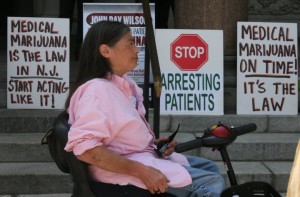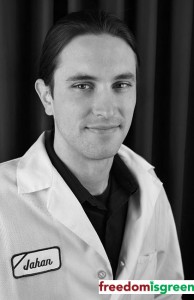The Philadelphia District Attorney’s office is calling a new set of procedures for minor pot cases a success and plans to continue with the Small Amount of Marijuana (SAM) program.
Last year the Pennsylvania Supreme Court worked with the new DA, Seth Williams, to make a pragmatic change in how the justice system deals with marijuana possession of 30 grams or less. A new program was created that includes a diversion court appearance, an education class and fees of $200. The major difference is that there is no longer an instant criminal prosecution. The offender pleads to a non-drug related charge that is automatically expunged from their record.
In January PhillyNORML’s Chris Goldstein spoke with Philadelphia Assistant District Attorney Joe McGettigan about the new marijuana policy. McGettigan said that the SAM program is working, “Look, certainly this was a much better option than sending all these people into the criminal court last year for misdemeanors.”
The DA’s office provided the following figures related to the SAM program:
June 2010 to September 2010
1636 marijuana possession cases less than 30 grams TOTAL
339 bench warrants issued for failure to appear
1297 marijuana possession cases less than 30g are heard
1025 enter the Small Amount of Marijuana diversion program ( 79% )
81 went to trial
187 statuses continued
4 cases withdrawn
The procedural shift has eased penalties and a particularly harsh process for offenders. For the last two decades anyone in Philadelphia who was caught with a single joint on up to 30 grams was held for bail then prosecuted in a criminal court. This involves a tremendous amount of the justice system’s resources and the expensive procedure was almost unique in the Commonwealth of Pennsylvania.
There are over 4,500 such cases in Philly every year (the largest concentration of pot arrests in PA) so minor marijuana offenses were literally clogging holding cells, bail officer, printing machines, court reporters, clerks, judges and courtrooms. The real world cost savings for the city this year by eliminating those expenses could tally into the millions.The shift also made a significant, tactile change; residents who consume marijuana and run afoul of prohibition laws have a less traumatic experience.
PhillyNORML’s Chris Goldstein said, “This was a positive shift for the city. Still minor marijuana possession arrests are increasing and continue a disturbing trend of being extremely racially disparate.”
An average of about 325 black men, 50 black women, 95 white men and 8 white women will be arrested every month this year in Philadelphia.




 Jahan Marcu is currently investigating the pharmacology of cannabinoid receptors. He was working at the California Pacific Medical Center Research Institute when exciting discoveries were made showing enhanced anti-cancer effects with THC and CBD from the Cannabis plant. The findings were published in the Journal of Molecular Cancer Therapeutics. In 2009 he received the Billy Martin Award from the International Cannabinoid Research Society (ICRS). Jahan is currently the vice-chair the Medical and Scientific Advisory Board at Americans for Safe Access (ASA). Questions? Contact
Jahan Marcu is currently investigating the pharmacology of cannabinoid receptors. He was working at the California Pacific Medical Center Research Institute when exciting discoveries were made showing enhanced anti-cancer effects with THC and CBD from the Cannabis plant. The findings were published in the Journal of Molecular Cancer Therapeutics. In 2009 he received the Billy Martin Award from the International Cannabinoid Research Society (ICRS). Jahan is currently the vice-chair the Medical and Scientific Advisory Board at Americans for Safe Access (ASA). Questions? Contact 








